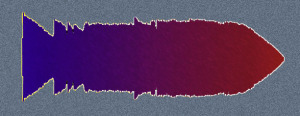So far, the promise of digital music falls short
 It's my fault... Well, OK, not my fault alone, but really the outcome of my efforts combined with many like me. I've made a career as a software engineer, a career that began at Digidesign (now Avid) right around the dawn of the digital music era. It was an amazing experience, being surrounded by so many bright, motivated software people, nearly all of whom were also experienced musicians. Just about every office in the building had at least one musical instrument, a mixing board, an amp and other musical odds and ends. We all shared this grand vision of how digital recording was going to completely change the world, placing the real power in the hands of individual musicians and not the record industry. We musicians would no longer be at the mercy of talent scouts and no longer forced to pay $100 an hour to track our music onto fancy 2" tape decks.
It's my fault... Well, OK, not my fault alone, but really the outcome of my efforts combined with many like me. I've made a career as a software engineer, a career that began at Digidesign (now Avid) right around the dawn of the digital music era. It was an amazing experience, being surrounded by so many bright, motivated software people, nearly all of whom were also experienced musicians. Just about every office in the building had at least one musical instrument, a mixing board, an amp and other musical odds and ends. We all shared this grand vision of how digital recording was going to completely change the world, placing the real power in the hands of individual musicians and not the record industry. We musicians would no longer be at the mercy of talent scouts and no longer forced to pay $100 an hour to track our music onto fancy 2" tape decks.
And, in many ways, that's exactly what happened. The record industry has struggled in the last decade and, similarly, recording studios are having a tough time figuring out how to stay in business. But, musicians did not benefit to the extent we all envisioned. Instead, companies like Apple, Google and Comcast stepped in and leveraged the weakness in the entertainment industry. They've reaped huge rewards, while the playing field is still steeply tilted against the individual musician.
What went wrong? First of all, digital media reinforced a trend in consumers' perception of intellectual property value that had already begun with LPs and tape. The average consumer believes that the right price for an album is between $10 and $15. But, it's gone beyond that with streaming and other forms of digital distribution. Many consumers believe that because they can obtain music for free, that music should be free. Unfortunately, that attitude tips the scales toward big businesses, who sell in large quantity. If you sell millions of copies of something, you are better equipped to lose a fraction of those shares to unpaid downloads. In contrast, the typical indie musician may sell 10s or 100s of copies of their album. If your fans don't pay you for all of those copies, you lose money on the release (you may lose money anyway, but you lose less if every copy is paid for).
Secondly, most of the online streaming and distribution services make it very difficult to stand out. For the Scattershock and Danger, Ltd. releases, I spent a lot of time making sure we had product available on iTunes, CDBaby and Bandcamp. I also went through the social networking services (Facebook, Myspace, etc.) and the music services (Last.fm, MOG, Spotify, Pandora, etc.) trying to make sure we have complete profiles and are well-represented on each service. I will discuss my specific experiences with some of these services in future postings, however, overall I found the digital music world to be just as restrictive to our indie releases as the old brick and mortar record industry. As a non-touring act, with a very small initial following, the services tended to push us into the "Who Cares?" category. We have minimal ratings, so we rank low in searches. On some services we don't have enough "something" to qualify for their flavor of "bands we sound like". In essence, the new digital distribution model still makes it easiest for major releases to get attention.
Generally speaking, I'm an optimist. I still believe that it's possible for the digital revolution to benefit the small indie artists. Much like a political revolution, however, the digital revolution has been co-opted by a new generation of big companies. For the revolution to eventually benefit indie artists, the consumer and the Internet will need further evolution and refinement. I am hopeful that eventually things will improve but, so far, the promise of digital music has fallen short.
 Post a Comment → Posted on
Post a Comment → Posted on  Monday, March 12, 2012 at 9:17PM
Monday, March 12, 2012 at 9:17PM  digital music,
digital music,  distribution,
distribution,  indie,
indie,  music,
music,  ranking,
ranking,  social network,
social network,  streaming | in
streaming | in  Streaming
Streaming